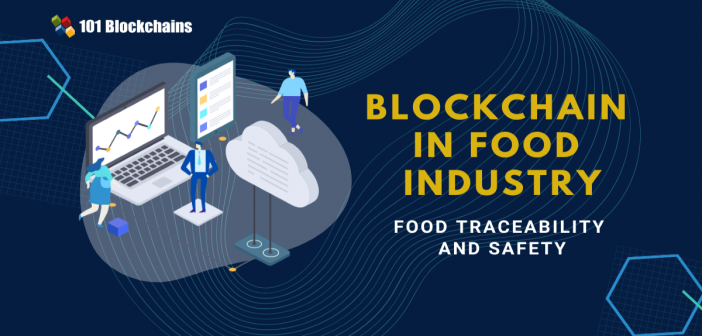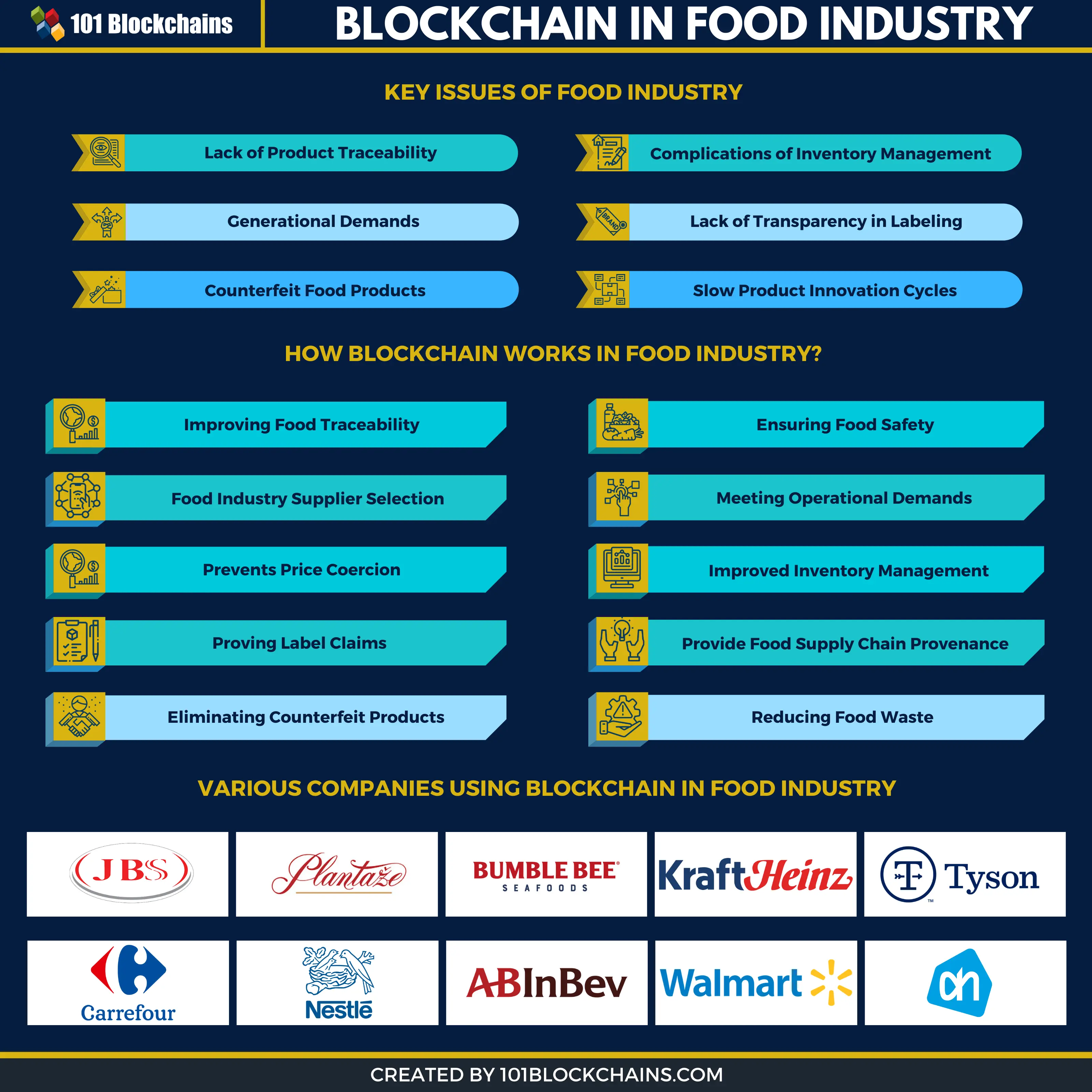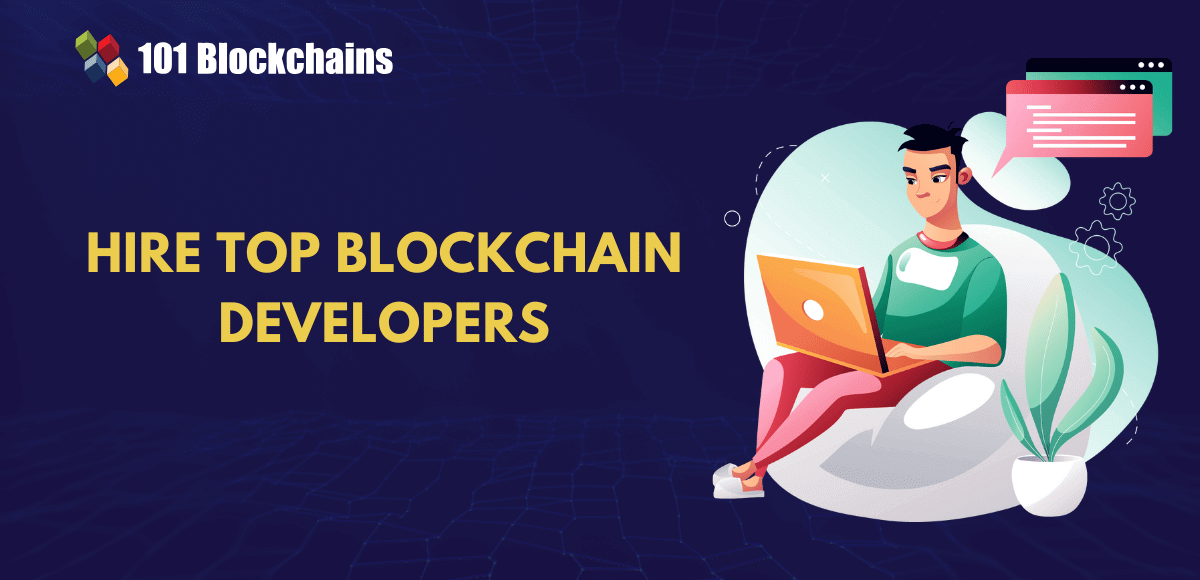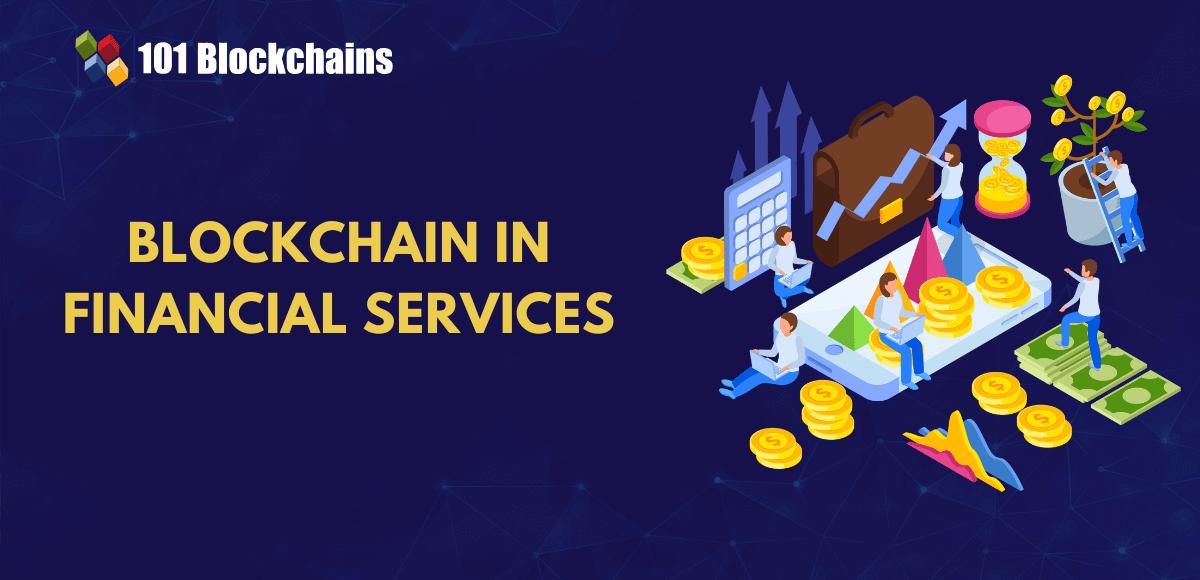Learn how blockchain truly works, master key definitions, and uncover what makes smart contracts so "smart." Dive into the fundamentals, gain valuable insights, and start your blockchain journey today!

- Blockchain
Hasib Anwar
- on December 05, 2020
Blockchain in Food Industry: Food Traceability and Safety
When blockchain first started to emerge, experts only thought it was limited to financial industries. But over time, blockchain started to push for adoption in various industries outside finance. At the moment, the food industry seems to be one of the most inclusive destinations for blockchain technology. Over the past couple of years, various food business players are announcing their very own blockchain initiative.
Not only that but in 2019, blockchain started to disrupt the industry at a rapid rate. According to research, more than 20% of the top global companies will use blockchain by the year 2025. So, this means the application of blockchain technology in the food industry will increase over the upcoming years.
What makes this technology so much appealing that food industry giants are implementing their own solutions? In this guide, we will discuss how important blockchain is for the food industry and how it can reshape the future of food.
Build your identity as a certified blockchain expert with 101 Blockchains’ Blockchain Certifications designed to provide enhanced career prospects.
Blockchain In Food Industry: Key Issues of Food Industry
There are certain issues regarding the food industry. Although this industry is massive, still if the problems aren’t solved efficiently, it can collapse the ecosystem. So, let’s see why this industry needs blockchain technology.

Please include attribution to 101blockchains.com with this graphic. <a href='https://101blockchains.com/blockchain-infographics/'> <img src='https://101blockchains.com/wp-content/uploads/2020/11/blockchain-in-food-industry.png' alt='blockchain in food industry' /> </a>
Lack of Product Traceability
Well, tracking the products is a huge issue as most of the companies seem reluctant in this case. With proper tracking in place, consumers don’t have any clue how or what way the food was processed. In reality, no consumers are interested in organize and healthy elements more than ever. So, they are overly skeptical about every single element they are eating.
But if the food company is not tracking the products or the process, how will they maintain the quality? The issue is that tracking the food or the process from suppliers to the consumer needs additional investment. Therefore, many companies aren’t that eager to spend more money than they need on this.
Changing Regulations
In reality, the food and beverage space falls under government regulations. So, many organizations such as EPA, FDA, FTC, and OSHA are working diligently to maintain certain norms relating to food labels, healthy products, and hygiene.
In most cases, the companies follow all the rules wholeheartedly; however, in certain miscommunications, the industry ends with bad food quality, raw material surplus, and food wastage. Due to the nature of changing rules, many companies have to recall their new products as the new rules weren’t in sync with their products. So, in the end, they end with losing money and valuable time.
Complications of Inventory Management
Inventory management in the food industry is a bit complicated as the foods have expiration dates. So, the maintenance of these products is more severe than in other industries. More so, in order to maintain hygiene, they have to constantly monitor the conditions of the storage facilities. However, manual monitoring does take a lot of time.
More so, the companies aren’t properly equipped to handle the management in times of seasonal demands. So, the industry ends up with mismanaged inventory, which leads to food wastage and money losses. So, many times, the shipments arrive late, or they can send the wrong products with shorter shelf life.
Generational Demands
Well, the demand for food does vary from generation to generation. Not every generation has a similar taste in food or beverages. Therefore, it becomes quite hard to keep up with all the problems at the same time. In reality, the companies have to satisfy six major generations, starting from babies to the elderly. Yes, they can generate data based on consumer preferences, but there aren’t many tools out there to sort it out efficiently.
Therefore, companies can outline their consumers’ basic demands, but there are lots of room for growth. Sometimes due to the lack of efficient measures, they can miscalculate and increase the production of a low demanded product.
Get familiar with the terms related to blockchain with Blockchain Basics Flashcards.
Lack of Transparency in Labeling
Well, this is one of the major issues of the food industry that directly affects the consumers. Although in some cases, companies do tend to be honest about the ingredients they used in production. But in most cases, they mislead by the information in the label. For example, now people are more drawn to vegetarian or vegan foods.
But in many vegetable-based dishes use ingredients that come from meat-based products. Also, they tend to classify them as chemical elements so that the common people can’t differentiate between what they are using. Again, some companies can use harmful chemicals and not even mention them on the label. This is definitely not an acceptable means to do business.
Counterfeit Food Products
Another huge problem is the increasing number of counterfeit products. It seems more or less every industry has to deal with counterfeiting issues. But in the food industry, it can go wrong at any time. Obviously, if people start to eat counterfeit products, they can fall seriously ill, and it can even lead to death. Also, as time is going by, more and more shady companies are introducing counterfeit products with an authentic one. So, it becomes quite hard to differentiate between them.
But the mother company has very limited options to deal with the issue. If this issue is not solved in time, it will damage both the company and the consumer.
Curious to learn about blockchain implementation and strategy for managing your blockchain projects? Enroll Now in Blockchain Technology – Implementation And Strategy Course!
Slow Product Innovation Cycles
Coming up with new products is a tough call in this industry. In reality, companies have to extensively analyze the consumer base and what kind of foods they enjoy. Also, any new product’s popularity is a time-sensitive gamble. Sometimes, the popularity of the product can last for decades, and sometimes only a few months. So, the company has to pay extra attention to making them, which takes up a lot of time.
So, to counter the problem, they will help from technology that can forecast and even help them analyze the consumer demands better. Or else, the company can’t keep up with competition and will soon fall behind.
Poor Food Safety
Well, this is one of the most pressing issues of the food industry. In reality, even slight misconduct or mishandling of food elements can lead to contamination. And we don’t have to tell you the consequences of that. Unfortunately, the food industry is still not suited to track down the true source of the contamination. In most cases, it can even go undetected until it’s too late.
It’s a matter of public health and is a serious crime. Just for a minor issue, the company can lose all of their reputations, pay heavy fines, and even close down. Also, in today’s time, consumers are skeptical about most of the things they buy. So, minor contamination can end up badly for you and your company.
How Blockchain Works In Food Industry
Blockchain can work in various ways in the food industry. Here are some of the lucrative use cases that you will see in the blockchain.
Improving Food Traceability
As you already know, food traceability is much needed in this industry. Tracking the products is a huge issue as most of the companies seem reluctant in this case. With proper tracking in place, consumers don’t have any clue how or what way the food was processed. So, the industry needs a helping hand at this time.
Therefore, blockchain in food traceability can alter the scenario here for everyone. Blockchain is fully equipped to handle the tracing of the food from suppliers to the consumer who buys it. Thus, the companies can harness this power to increase their visibility on the production line and offer a better quality of food to the market.
Ensuring Food Safety
Another great benefit of blockchain is you can use it for food safety. Blockchain in food safety can help consumers be at ease and buy all their products without worrying about contamination or any other issue. As the food industry is still not suited to track down the true source of the contamination. In most cases, it can even go undetected until it’s too late. So, using blockchain, companies can monitor their handling of the raw elements and the finished products. More so, they can even handle their byproducts more carefully to maintain the quality and standard of their foods without any issues.
Food Industry Supplier Selection
Another thing blockchain can help out in is the selection of the supplier. In the food industry, companies are quite competitive, and they always want to be in the first position in the market. But choosing the supplier for the raw materials needs to be extra thought out as low-quality raw materials will only result in low-quality finished products.
Therefore, using blockchain in the food industry supply chain, they can connect with better suppliers where the suppliers have to offer provenance of their quality. So, blockchain can create a marketplace where suppliers can connect with the buyers and bid on certain projects based on their quality.
Meeting Operational Demands
Meeting up with daily operational demands is a hard task as well. In reality, companies find it hard to keep up with the increasing demands and to produce them in a short amount of time. As the industry does not always have proper channels in place to overcome the huge burden of operation demands.
Therefore, it becomes quite hard to keep up with all the varied generation demands at the same time. But using blockchain in the food industry supply chain, the companies can finally deal with the problem. Using the tech, they can keep track of all the elements of the production line and meet up with the demands of the daily operation.
Start learning Blockchain with World’s first Blockchain Skill Paths with quality resources tailored by industry experts Now!
Improved Inventory Management
There is a term in the supply chain called “Lead time.” This is the time that passes from the very start of a process to the end of the process. So, the shorter that time is, the better the company can manage its inventories. However, decreasing the lead time is hard using typical methods, and only a small number of tech giants can pull it off sometimes.
However, with blockchain in the food industry supply chain, it can automate the process of food production and get rid of discrepancies within the production line. Therefore, it can significantly shorten the Lead Time and evidently improve inventory management.
Prevents Price Coercion
The pricing in the food industry varies greatly. Therefore, it’s considered one of the volatile industries at the moment. Due to many reasons – social or environmental companies can change their pricing. But this price change negatively affects the consumers as they also have a limited amount of money to invest in food products.
Therefore, blockchain can help reduce the cost of making the products. It can also cut off all the middlemen fees, ultimately reducing the final pricing for the consumers. In reality, certain blockchain technology applications in the food industry can offer this feature without any issues.
Eliminating Counterfeit Products
Blockchain can help to eradicate the increased number of counterfeit products. If people start to eat counterfeit products, they can fall seriously ill, and it can even lead to death. But the mother company has very limited options to deal with the issue. If this issue is not solved in time, it will damage both the company and the consumer.
But, blockchain in food traceability can solve the issue instantly. As blockchain can track all the products from the production line to the consumer, it can ensure whether the product is authentic or not. More so, it can also reduce the scope of counterfeit products getting into the market by identifying the source of the problem.
Not sure how to build your career in enterprise blockchains? Enroll Now in How to Build Your Career in Enterprise Blockchains Course
Reducing Food Waste
Using blockchain in food traceability can help to reduce food wastage. There are many causes for food wastages, starting from bad inventory management to delayed shipment of products. In every case, the industry has to deal with massive losses, which in turn increases its pressure to produce more products in a short time to meet up with the existing demands.
But with blockchain, the companies can start to trace the foods to maintain the health codes and follow all the guidelines and improve their management system. As they can keep track of everything online, it’s easy to improve efficiency and reduce food wastage to a minimum, even in real-time.
Provide Food Supply Chain Provenance
Another major hurdle is the non-existing provenance of food products. So, you bought a product, and it may advertise in a certain way, but does it truly offer what it advertises. In most cases, it doesn’t. Consumers now don’t blindly trust the product they are buying from the store nowadays. They need provenance in order to know exactly how and when their food was made.
In reality, blockchain is perfect for that; you can use blockchain in food safety to maintain the provenance, starting from the farmers to the retail store. Just by scanning the QR code on the product, a customer can see the history behind that food product and be assured that it is what they claim it is.
Want to know the role of blockchain in the retail industry? Check: Blockchain In Retail
Proving Label Claims
As you know, companies tend to be a bit misleading when it comes to labels. In many cases, they can even use harmful chemicals but make it seem like they are using all organic elements. This can lead to people dying due to the consumption of harmful chemicals within processed foods. So, you can use blockchain in food safety initiatives to fight back the problems.
As blockchain will record every single element you used in the making process of a product, you can make that record public to your consumers in order to prove your label claims. If you have nothing to hide, then why not use blockchain to prove the point?
Want to know how blockchain impact enterprise supply chain operation? Enroll Now: Enterprise Blockchains and Supply Chain Management Course
Various Companies Using Blockchain In Food Industry
-
Walmart
Walmart is using blockchain in the food chain to track sliced mango packages. Previously, it took them about six days to track the whole process of the food. However, now it only takes seconds! Can you imagine the amount of time they are saving? More so, this tracking took place all the way from Mexico to their store. So, the packages went through a lot of stages, and blockchain could detect the condition in each one of them.
-
Carrefour
Carrefour is one of Europe’s largest retailers that is using blockchain to trace their free-range chickens. More so, they also allow shoppers to track the process at every stage, knowing just from where and how the chicken was available in the store. Therefore, with success, the company wants to use blockchain in food and beverage items, including milk, salmon, tomatoes, eggs, honey, and so on.
-
Nestlé
Nestlé is using blockchain in the food chain to trace their milk from farms and the production house to the factories. At present, they are working with OpenSc on the pilot project. However, it’s a great way to showcase their strengths to the market as they are choosing to stay transparent in their actions. More so, they also plan to include other products in this project later on.
-
Anheuser-Busch InBev
Anheuser-Busch InBev is one of the largest brewers in the world at the moment. At present, they are using blockchain in the food and beverage niche, and they are trying to improve their beverage supply chain traceability. In reality, they want to better the living condition of the people in Africa as they tend to get the raw materials from there.
-
JBS
JBS is using blockchain management in the food industry to increase the cross-checking process of livestock transportation data from their suppliers. In reality, using technology will help the company to guarantee security, confidentiality, and traceability.
-
Tyson Foods
Tyson Foods is using blockchain management in the food industry to trace their supply chain from farms and the production house to the factories. They are currently working with FoodLogiQ on the pilot project and other companies in the industry. More so, they also plan to include other products in this project later on. According to them, the project is hugely successful at the moment.
-
Kraft Heinz
Kraft Heinz is another player in the realm of blockchain. In reality, they are using blockchain in the food industry to enhance the safety measures for children’s food. More so, they also want to ensure that the baby foods are always of the highest quality, so they are planning to implement a traceability feature with the technology.
-
Albert Heijn
Albert Heijn is using blockchain to trace their orange juice from farms to the factories. At present, they are working with Refresco on the pilot project. More so, they also plan to include other products in this project later on. In reality, their primary target is to increase their transparency and maintain sustainable supply chain processes.
-
Plantaze
Plantaze is using blockchain in food and beverage to trace the 15.000 unique wine bottles that they produce from high-quality grapes. At present, they are working with OriginTrail and TagItSmart on the project. More so, they also plan to deal with fake wine issues that are so persistent in the market. In reality, their primary target is to increase their transparency and ensure its consumers that they have the company’s authentic product.
-
Bumble Bee Foods
Bumble Bee Foods is using blockchain management in the food industry to trace yellowfin tuna that the fishermen catch from the sea. At present, they are working with SAP on the pilot project. Anyhow, it’s a great way to showcase their strengths to the market as they are choosing to stay transparent in their actions. Their primary target is to eliminate mislabeling and help consumers to track the whole process of the trade.
Start learning Blockchain with World’s first Blockchain Career Paths with quality resources tailored by industry experts Now!
Final Thoughts
As you already know by now, blockchain can offer a lot of benefits in the food industry. The food industry is full of issues, and without finding a proper solution, the consumers are at risk. Therefore, using blockchain in the industry can help to eliminate most of the persisting issues and ensure a better and healthier community in the future.
If you are just a beginner and want to utilize blockchain in your company, we recommend checking out our blockchain courses! This can be the starting point of your blockchain journey.






